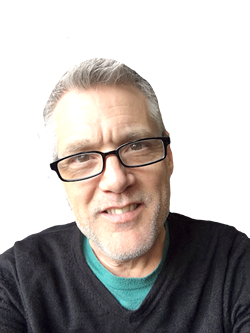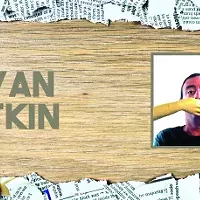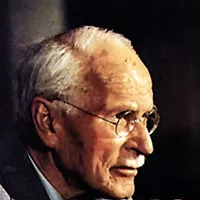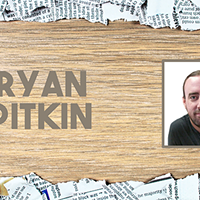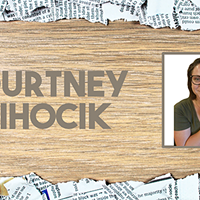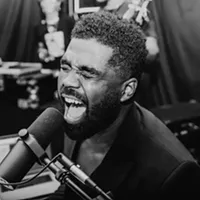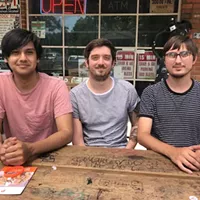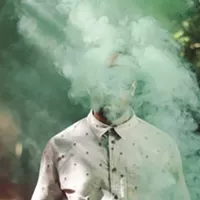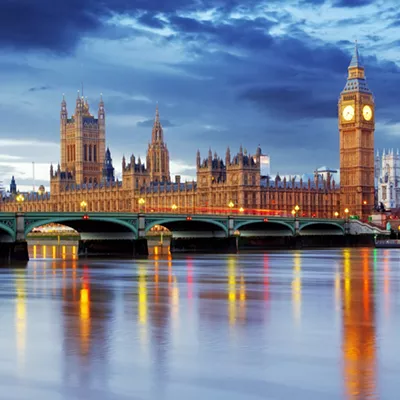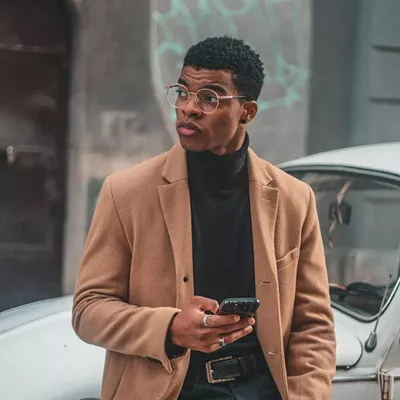Mental health ain't no joke. So why, in 2018, do we still often treat it either as a joke or as something to sweep under the carpet?
We call the president crazy when he fires off tweets that make us cringe. We call Kanye West crazy when he goes off script onstage, interrupts honorees at awards ceremonies or serial-tweets his support of the president.
We use the word "crazy" entirely too often to describe people about whom we know little to nothing. In fact, most of us know little to nothing about the terror and isolation people who suffer mental health challenges — from bipolar disorder to addiction — undergo on a daily basis.
What if someone were to look at every person with a gaunt face and no hair and dismiss them by saying, "Oh, they're just a cancer patient"? We all would be appalled. And yet that's what we're doing when we say, "Oh, so-and-so is just crazy."
In this week's cover story, news editor Ryan Pitkin checks in with a thoughtful, hard-hitting, well-reported story on issues facing people with mental health challeneges. But not just any people — Pitkin talks with a Charlotte man who has dedicated his life to reaching out specifically to African Americans with mental health challenges.
That's a whole other obstacle that few have been willing to tackle. Our nation's historic medical maltreatment of African Americans has left a deep scar, the result of which is a general distrust of the system. For instance, when Rwenshaun Miller, the founder of a Charlotte nonprofit that works with clients struggling with mental health challenges, was faced with hospitalization for his own mental health issues, his first thought was to run.
"I had a white man telling me that I was diagnosed with bipolar disorder and the only thing that I'm thinking is, 'Yo, what do I need to do to get out of here? I don't care what else you've got to say, just what else do I need to do to get out of here?'" Miller tells Pitkin.
It was only when Miller met with Dr. Kendell Jasper, an African-American psychologist, that his anxieties were eased. Jasper tells Pitkin that anyone facing mental health challenges is initially fearful of medical treatment and the stigma they'll receive from their communities. But for African Americans with mental health challenges, those fears are exponentially worse — so much so that it often keeps them from seeking medical help.
"What's different about our community is not only aren't we warm to dealing with [mental health challenges], when it comes time to provide your love and support, someone like myself [a doctor] is not the first person we would call," Jasper says. "We're going to call our bishop, our minister, our family friends, we're not going to call a professional, because there's a huge mistrust of institutions and systems in our community, which has a level of validity to it, considering how things have progressed for minorities in this country."
Compounding the problem of seeking help in the first place is the number of African Americans who could use it. According to Pitkin's story, the Health and Human Services Office of Minority Health reports that blacks are 20 percent more likely to experience serious mental health problems than the overall population, due to a variety of factors. And yet only about 25 percent of blacks who suffer from mental health challenges will seek medical care, compared to 40 percent of whites.
Meeting with Jasper, Miller says, "definitely changed the game for me."
Today, Miller reaches out to African Americans suffering from mental challenges through his nonprofit organization, Eustress, Inc. Last month, the American Psychiatric Association Foundation honored Miller with its Award for Advancing Minority Mental Health for "undertaking special efforts to increase public awareness of and secure quality and comprehensive mental health care for underserved minorities."
All this is personal for me, and it may be personal for you, too. I have good friends living with mental health challenges who have told me they've been in exactly the same place Rwenshaun Miller was in when he sat in that hospital bed with a white doctor delivering his diagnosis. And those friends had the same reaction — the desire to run, to hide, to get away, to deny. The stigma of confronting and embracing one's mental health challenges can be overwhelming for African Americans in our society — and we don't make it any easier when we scoff at celebrities whose public behavior may or may not be due to a mental health challenge.
For my friends and your friends or family members, read Pitkin's story this week, and let's rethink our collective attitudes toward mental health challenges. Too many people are suffering for us to have the luxury and tone deafness to randomly and erroneously call people "crazy."

